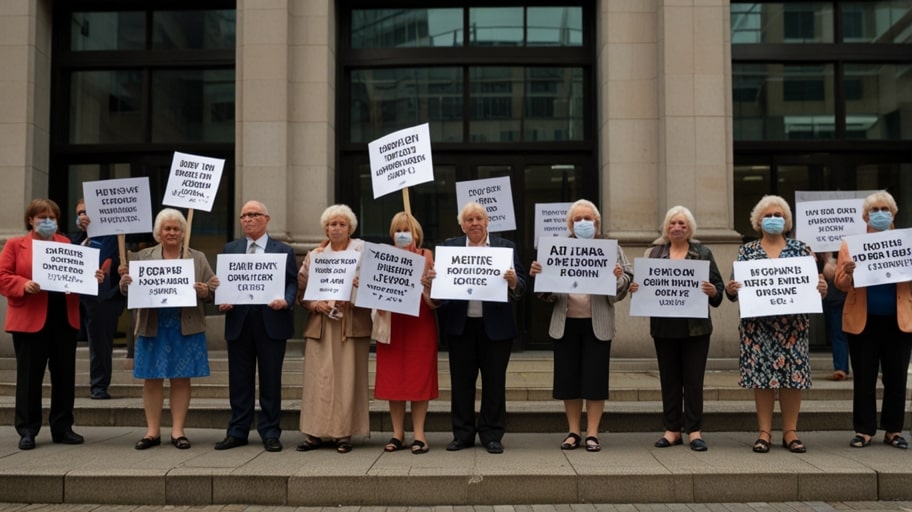
Dwp Cost of Living Payment 2025: Detailed Overview
The Department of Work and Pensions has confirmed that the cost-of-living payments, a lifeline for low-income households, are not going to be extended to 2025. That scheme, between 2022 and 2024, has now been completed.
Scheme Background
Cost of living payments were introduced in 2022 to relieve the rising costs as inflation rose. The eligible households were to get up to pounds 900 per year, with the last payment of pounds 299 due in February 2024.
Why Payments Stopped
The DWP provides better economic conditions, such as declining inflation, as a result of stopping payments as of April 29, 2025, GOV. The UK update said that no future payments would be made, with greater emphasis being placed on long-term welfare reforms.
Who was Qualified?
The former payments included those receiving benefits tested on means such as Universal Credit, Pension Credit, and Income Support. Eligibility required that a person had to have received these benefits during specific qualification periods, which were typically one month prior to the payments.
Consequences of Decision
Millions are hit by the cessation of payments, especially low-income families and pensioners. The critics state that the costs of living remain high despite reduced inflation levels, which leaves the vulnerable groups without the desperately needed funds.
Other Types of Support Measures
Since April 2025, the deductions to Universal Credit are set to be limited to 15 percent of the standard allowance, which is lower than 25 percent previously, and the claimants will be allowed to retain an income. It is also planned to introduce a one-time increase in the week of 7 pounds in the year 2026.
Pensioners are Suffering
The pensioners, particularly those on Pension Credit, encounter difficulties in the absence of payments. Advocacy organizations caution that energy and food price increases might leave more pensioners destitute unless a special effort is made.
Security Universal Credit Uprating
Universal credit was increased in April 2025 according to the inflation rate of September 2024, which was 1.7 per cent. Although this increases payments, critics indicate that it is not enough to cover the loss of cost-of-living support.
Reaction of the Public and Politics
The move has not been without controversy, and charities have responded to the decision, asking people to give once again. MPs in the Labour Party are under pressure to deal with issues leveled against them by the voters, particularly in constituencies where it has a deep reliance on benefits.
Payment History
Between 2022 and 2024, the payment ranged from £ 150 to £ 650, and it is automatically transferred to bank accounts that qualify. They were shown as the DWP COL National Insurance number of the claimant.
Appeals to Reconsider The Calls
The DWP is encouraged to restore the payments by campaigners due to the prevailing economic weaknesses. Campaigns through petitions and social media focus on individual stories of suffering, demanding that the government do something.
Other Changes of Welfare
A bill proposed in June 2024, the Universal Credit and Personal Independence Payment Bill 2024-25, seeks to streamline the benefits system but lacks an additional cost-of-living payment, a disappointment to advocates.
Economic Context
The government states that inflation, which reached 1.7% in September of 2024, lowers the necessity of payments. Critics, however, cite the fact that life is still costly in basic necessities such as energy and food.
Effects on Low-Income Households
Families on low income have to deal with shrinking budgets, and they used to survive on payments. In 2024, the loss of 299 pounds per household translates to a massive reduction in after-tax adjustment on necessities.
Communication of DWP
DWP wants their claimants to update their contact details so that they do not miss on future benefits. There were no claims in the past payments, but the upcoming assistance can be presented through active applications.
Regional Variations
In Wrexham, where the pressures of cost of living are still in effect, local councils have begun to look at discretionary funds to help out residents, but these encroachments lack the full sums paid out under DWP.
Charities Step In
Organizations such as Citizens Advice have been giving budgeting advice as well as crisis grants to plug the gap. Nonetheless, they are overstretched and cannot provide full substitution of DWP payments.
Political Stakes
Coming so late to the elections, the move had the potential to influence the electorate. By refusing to pay labour, there is a risk of offending the households with low incomes, and Conservatives are insisting on tax reductions as an alternative.
Looking Ahead
And nothing new will be paid in 2025, although a push of a finger will change the policy. The DWP has a thorough understanding of the economy’s dynamics, and assistance can be provided in the event of inflation resuming its rapid growth.
Tips to Claimants
Claimants are encouraged to look at the eligibility of their current benefits, such as Pension Credit, which may offer continuing help. It can also help to relieve the problem in the short run by approaching local welfare schemes.



 Bitcoin
Bitcoin  Ethereum
Ethereum  Tether
Tether  XRP
XRP  USDC
USDC  Solana
Solana  TRON
TRON  Lido Staked Ether
Lido Staked Ether  Cardano
Cardano  Avalanche
Avalanche  Toncoin
Toncoin